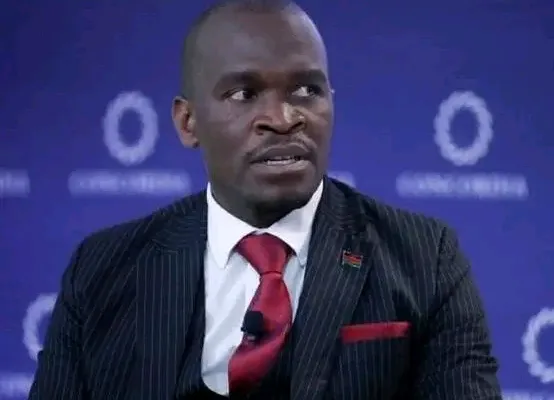
The Center for Democracy and Economic Development Initiatives (CDEDI) has called for immediate intervention from the Office of the Attorney General, urging it to challenge a court order that has frozen the bank accounts of Salima Sugar Company Limited (SSCL).
In a letter addressed to the Attorney General and copied to SSCL and the Green Belt Authority, CDEDI Executive Director Sylvester Namiwa is pressing for action to ensure the recovery of public finances and uphold justice.
Namiwa emphasized that Attorney General, Thabo Chakaka-Nyirenda is committed to safeguarding public funds and recovering from financial losses from questionable dealings involving SSCL.
However, Namiwa argues that the lack of swift action in this matter reflects poorly on the Attorney General’s office, which is now perceived as compromised in the fight against corruption and financial mismanagement.
CDEDI’s main concern revolves around what it describes as a “dangerous trend of selective justice” in Malawi, where certain individuals and organizations seem to evade accountability while others are targeted.
Namiwa pointed out that the inaction regarding the frozen SSCL accounts has fueled public distrust in the government’s commitment to transparency and equitable justice.
“The Attorney General must act swiftly and challenge this court order to freeze SSCL accounts. The public deserves to see real action, especially in cases where there is a clear misuse of public funds,” Namiwa stated. He went on to criticize what he views as a pattern of leniency towards certain high-profile cases, which is eroding confidence in the justice system.
Namiwa’s letter serves as a stark reminder to the Office of the Attorney General about its critical role in safeguarding public resources and ensuring that justice is applied equally.
According to CDEDI, failure to address this issue will only deepen the perception that the government is not serious about fighting corruption and holding powerful individuals and companies accountable.
Salima Sugar Company Limited, a public-private partnership with the Green Belt Authority, has been at the centre of financial scrutiny, with questions raised about its financial management and accountability to the public. The freezing of the company’s accounts follows ongoing investigations into alleged financial irregularities, which CDEDI believes should be pursued with urgency.
“The Attorney General’s office must demonstrate that it is not beholden to political or economic pressure,” Namiwa said. “Selective justice undermines the rule of law and betrays the trust of Malawians, who deserve a government that is fully committed to fighting corruption.”
CDEDI’s demands go beyond the immediate issue of the court order against SSCL. Namiwa calls for the Attorney General to take proactive steps to ensure that all parties involved in financial mismanagement, regardless of their connections or status, face consequences.
The organization believes that any failure to act now will signal to the public that the legal system is being manipulated by those in power.
Namiwa further cautioned that inaction could harm the credibility of the Attorney General’s office, which has already faced public criticism over its handling of several high-profile cases. “We are calling on the Attorney General to demonstrate leadership and integrity by ensuring that no one is above the law,” Namiwa stressed.
The Center for Democracy and Economic Development Initiatives (CDEDI) is demanding accountability and transparency in the handling of public finances and the judicial process surrounding the Salima Sugar Company Limited case. Namiwa’s appeal to the Attorney General highlights the broader issue of selective justice, which many Malawians feel has become all too common in the country.
As pressure mounts on the Attorney General’s office, the next steps taken by Thabo Chakaka-Nyirenda will be closely watched by civil society and the general public. Whether the court order freezing SSCL accounts is challenged or upheld, the response will likely have significant implications for public confidence in Malawi’s legal and governance systems.














